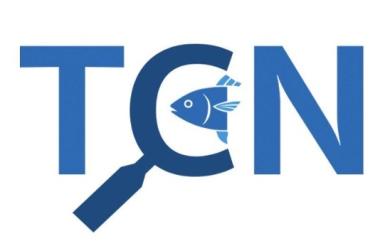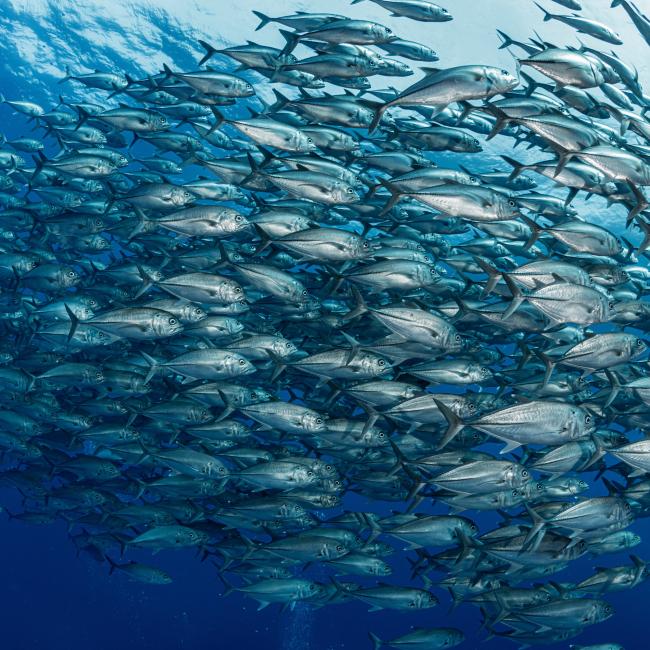Image
The Tuna Compliance Network (TCN) was established in 2017 to promote communication and cooperation between the tuna RFMOs and to provide an informal forum to share information about MCS processes and compliance best practice. The TCN was established with support of the Common Oceans Tuna Project, more formally known as the project on Sustainable Management of Tuna Fisheries and Biodiversity Conservation in the Areas Beyond National Jurisdiction (ABNJ), which is funded by the Global Environment Facility and implemented by FAO. The TCN is hosted within the IMCS Network and includes officers responsible for compliance in the five tuna RFMOs including Lara Manarangi-Trott and Eidre Sharp (WCPFC), Gerard Domingue (IOTC), Jenny Cheatle (ICCAT), Ricardo Belmontes (IATTC) and Susie Iball (CCSBT). The TCN has been invaluable in bringing together those that work in this unique, complex and challenging environment and that collectively have over 100 years of experience in RFMO MCS and compliance.
“Over the past five years, TCN has provided many opportunities for closer collaboration between officers responsible for compliance in the tuna RFMOs. It has been invaluable to share with our counterparts our learned experiences and use of a range of tools. We have been able to discuss new ideas and ways each secretariat can best support our respective compliance committees’ work, including the compliance assessment processes”.
Dr Lara Manarangi-Trott, TCN Chair
“The IMCS Network is proud to support the TCN and its work. The TCN has been a successful forum to promote communication and cooperation between the five tuna RFMOs and we look forward to supporting them in the coming years. The TCN provided the model to establish the Pan-Pacific Fisheries Compliance Network (PPFCN) and we look forward to the progress of both networks. We consider this coordinated, but informal, approach to communication and cooperation as key to advancing efforts to inform RFMO processes”.
Mark Young, Executive Director, IMCS Network
About the Study
All tuna RFMOs have adopted a structured and consistently applied process to assess participants’ implementation and compliance with obligations. These processes may identify trends in compliance over time that can be used to improve the performance of an RFMO and to support participants to better meet their obligations. In 2020, the TCN identified a need to undertake a comparative review of the compliance assessment processes implemented by the tuna RFMOs to:
- Understand and compare the compliance assessment processes and issues that impact their effectiveness.
- Highlight successful compliance assessment-related systems, processes, policies or responses currently implemented by the tuna RFMOs.
- Identify compliance trends and issues impacting compliance.
- Develop recommendations to enhance, strengthen and streamline the compliance assessment processes.
To assist the understanding of the compliance assessment processes, it was agreed that the study would:
- Examine the broader context in which these processes have been developed and operate.
- Provide a comprehensive overview of process elements including the composition and roles of participants in the tuna RFMOs, the compliance structures and bodies established to support or direct the compliance assessment process; and the way in which the compliance assessment processes themselves have developed.
- Examine all aspects of the processes; from the obligations assessed to the use and presentation of data and information.
- Seek to establish if compliance assessment processes are effective and can identify compliance trends over time.
Completed and released
The study was completed in mid-2022 and, following a review by all members, the TCN is now pleased to release the study.
It has now been over a decade since the compliance assessment processes were adopted by the tuna RFMOs and a great deal of work has been dedicated to strengthening and enhancing the processes. While difficult to quantify, compliance does appear to have improved over time and the compliance assessment processes do seem to have contributed to this improvement. However, the study highlights that opportunities remain to increase the effectiveness of the processes to ensure that RFMO participants can fully support the assessment processes and that they effectively identify and address implementation and compliance issues.
The study’s recommendations are intended, in the first instance, to address the key compliance assessment process pain points identified. This included factors such as:
- the number and complexity of reporting obligations;
- the quantity, utility and interpretation of data input into and collected from annual reporting templates; and
- the vast amount of data and information required for the assessment processes in general.
The study identified that fundamental improvements across these pain points would likely have a positive influence on the effective operation of the compliance assessment processes into the future.
For more information
Contact: Sarah Lenel, Deputy Director, IMCS Network
Email: slenel@imcsnet.org

